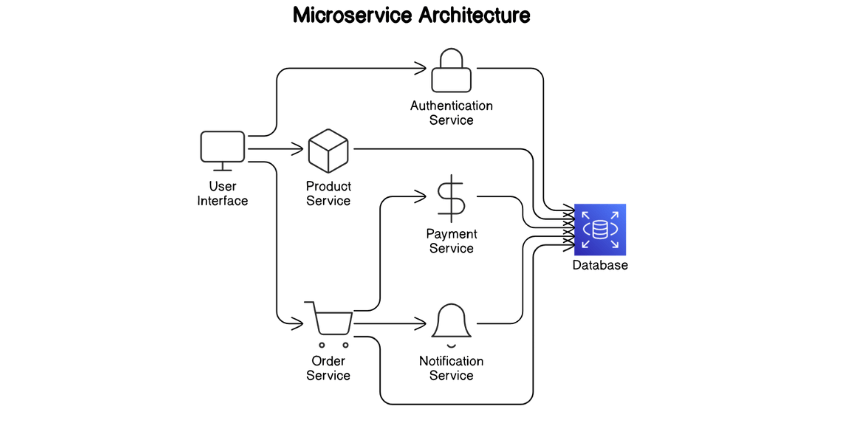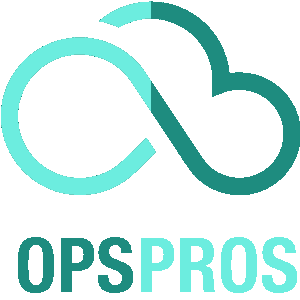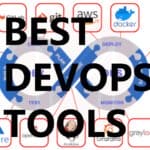Navigating logging in DevOps needn’t feel like wading through a muddy swamp.
Too many tech firms are drowning in a sea of messy logs, missing the valuable insights hiding in the chaos.
Logging is a fundamental part of DevOps workflows. It provides critical insights into the performance, security, and stability of applications and infrastructure. Effective log management in DevOps can unlock the potential of a seamless environment and enable teams to troubleshoot issues efficiently.
The Role of Logging in DevOps
In DevOps, logging plays a crucial role in providing valuable insights into the performance, security, and stability of applications and infrastructure. Logs are essential for tracking system events, application errors, and other critical activities that occur during the DevOps process. The ability to collect and analyze logs is key to identifying issues, debugging code, and improving the overall quality of the DevOps workflow.
Logs can provide insights into application performance, such as response time, resource utilization, and error rates. They can also help DevOps teams detect and respond to security threats before they become serious issues. In addition, logs can help teams understand how changes to the system and applications impact performance and identify potential areas for improvement.
Integrating logging into DevOps workflows can be achieved through various techniques, such as log4j for Java-based applications or the Syslog protocol for Unix-based systems.
Additionally, DevOps teams can use logging platforms that provide centralized management and analysis of logs, such as ELK Stack, Splunk, and Datadog.

These platforms can help DevOps teams analyze and visualize log data, create custom dashboards, and set up alerts for critical events.
Logging in Action
Let’s take an example of a DevOps workflow where logs are integrated seamlessly. In this workflow, a team has developed a microservices-based application. Each microservice generates logs, which are then sent to a centralized logging platform, such as ELK Stack. The platform provides real-time monitoring and analysis of the logs, allowing the team to quickly detect and respond to issues.
For instance, if a microservice starts to generate a high number of errors, the platform can flag the issue and send an alert to the DevOps team.

The team can then investigate the issue, determine the cause, and make the necessary changes. This approach ensures that DevOps teams can identify and resolve issues quickly, reducing the time to resolution and minimizing the impact on end-users.
Log Management Systems for DevOps
Effective log management is a cornerstone of successful DevOps workflows. It can provide valuable insights into system performance and help teams identify and troubleshoot issues quickly.
There are several popular log management systems available, each with its own unique features and benefits:
| Log Management System | Description |
|---|---|
| ELK Stack | A powerful open-source platform comprised of Elasticsearch, Logstash, and Kibana. ELK Stack is highly customizable and scalable, making it a popular choice among DevOps teams. |
| Splunk | A cloud-based log management solution that offers real-time monitoring and analysis capabilities. Splunk is known for its ease of use and powerful search features. |
| Datadog | A cloud-based platform that provides monitoring, logging, and analytics capabilities. Datadog integrates with over 400 technologies and offers a user-friendly interface and customizable dashboards. |
Integration of these log management systems with DevOps workflows can range from simple configuration to complex infrastructure as code (IaC) pipelines. For example, the ELK Stack can be integrated with Docker containers through Logspout, allowing logs to be collected and analyzed in real-time.
It is important to select a log management system that aligns with your team’s specific requirements and objectives. Factors to consider include scalability, ease of use, and the ability to integrate with other DevOps tools.
Log Management Systems for DevOps: Common Challenges

Despite the benefits of log management systems, there are several common challenges that teams may encounter:
- Cost: Some log management systems can be expensive to operate, particularly for large-scale deployments.
- Scalability: As system complexity grows, log management can become cumbersome and difficult to scale.
- Searchability: The ability to quickly search and analyze logs is crucial for effective troubleshooting and issue resolution.
To overcome these challenges, it is important to establish clear logging practices and ensure that log management systems are integrated effectively into DevOps workflows.
Integrating Logging into DevOps Processes
Logging is a crucial component of the DevOps process, providing essential insights into application performance, security, and stability. However, to unlock its full potential, logging must be integrated into all stages of the DevOps lifecycle.
Development
Integrating logging into the development process can help catch errors and potential issues early on. It is recommended to use a logging framework, such as log4j or logback, and to define logging levels for better organization. Developers can also create custom log messages to provide more context on specific events or actions.
Testing
During testing, logging can help identify issues and track the flow of application processes. It is important to capture relevant data, such as user inputs and system outputs, for later analysis. Testers can also use logging to verify that the application is performing as expected under various scenarios and conditions.
Deployment
When deploying applications, logging can provide valuable insights into system performance and stability. It is recommended to include logging as a part of the deployment process, either through automated scripts or manual configurations. Deploy logs should capture key data points, such as version number and deployment date, for easier tracking and analysis.
Monitoring
Logging is a critical component of monitoring applications in real-time. It enables DevOps teams to identify and respond to issues quickly and proactively. By integrating logging with monitoring tools, such as Prometheus or Grafana, teams can create custom alerts based on log data to notify them of potential issues before they become major problems.
Overall, integrating logging into all stages of the DevOps process is essential for effective application management and optimization.
Optimizing Logging Processes for Efficiency
Efficient logging processes are critical to ensure high-performance and scalability in DevOps workflows. Here are some techniques to optimize logging processes:
Log Aggregation
Log aggregation involves collecting logs from different sources and consolidating them in a centralized location. This helps to streamline log analysis and makes it easier to identify issues. Tools like ELK Stack, Fluentd, and Sumo Logic can be used to aggregate logs from multiple services and applications.
Log Filtering
Log filtering involves sorting through logs and removing data that is not relevant. This reduces the amount of data that needs to be processed and can make it easier to analyze logs. Tools like Logstash and Splunk can be used to apply filters to logs.
Log Indexing
Log indexing involves creating an index of keywords and phrases within logs to speed up log searches. This helps to reduce the time required to identify issues and troubleshoot problems. Tools like ElasticSearch and Loggly can be used to index logs for faster retrieval.
Log Analytics and Machine Learning
Log analytics and machine learning can be used to gain insights from logs and identify emerging issues before they become critical. These tools can be used to analyze logs at scale and identify patterns and trends that would be difficult to observe manually. Tools like Splunk, Azure Log Analytics, and Datadog offer log analytics and machine learning capabilities.
DevOps teams can optimize their logging processes for greater efficiency and improved performance.
Troubleshooting and Debugging with Logs
In a DevOps environment, logs play a crucial role in identifying and resolving issues. By analyzing logs, teams can gain insights into the system behavior, trace the application flow, and investigate errors.
To troubleshoot with logs effectively, it is essential to implement a structured logging approach. By defining log formats and setting log levels, teams can ensure that logs contain useful information that helps in problem-solving. For instance, logs could contain a timestamp, the request and response headers, and the error message.
By filtering logs based on search criteria or keywords, teams can locate specific log entries that are relevant to the issue at hand. This can be achieved using log aggregation tools or cloud-based log management services.
Logs can also be used for debugging purposes. By analyzing logs, developers can trace the flow of requests and identify bottlenecks or performance issues. For instance, logs could help identify database queries that are taking longer than expected or APIs that are not responding.
To improve the efficiency of troubleshooting and debugging with logs, teams can leverage machine learning techniques.
“Logs are a valuable resource for troubleshooting and debugging in DevOps. With the right tools and techniques, teams can gain valuable insights into the system behavior and resolve issues quickly.”
Log Security and Compliance in DevOps

Logs play a critical role in DevOps workflows by providing valuable insights into application performance and security. However, logs can also contain sensitive information that must be protected to maintain compliance with relevant regulations and standards.
One of the best practices for ensuring log security in DevOps is to use a centralized logging system that provides access control and encryption. Access control allows DevOps teams to limit who can view or modify logs, while encryption ensures that data is protected from unauthorized access.
Another important aspect of log security in DevOps is log retention. It is essential to define a log retention policy that specifies how long logs will be kept and how they will be securely destroyed. This policy should also consider legal requirements, such as data retention laws and compliance regulations.
DevOps teams should also be aware of the potential risks associated with logs. If logs contain sensitive information, such as passwords or personal data, they can be a target for attackers. To minimize the risks, logs should be anonymized or obfuscated whenever possible.
Finally, DevOps teams should regularly review their log security and compliance practices to ensure they remain up-to-date with industry standards and regulations. Regular audits and reviews can help identify potential weaknesses and areas for improvement.
Monitoring and Alerting with Logs in DevOps

In a DevOps environment, logs play a critical role in real-time monitoring and alerting. By integrating logging with monitoring tools like Prometheus and Grafana, teams can gain valuable insights into the performance and stability of their applications and infrastructure.
Proactive log-based alerting allows teams to respond quickly to potential issues before they escalate. By setting up alerts for specific log events or patterns, teams can identify and resolve problems before they impact end-users.
For example, if a team notices a spike in server response times, they can investigate the corresponding logs to identify the root cause. By setting up an alert for response time thresholds, the team can be immediately notified of any anomalies and take action to rectify the issue before it escalates.
Implementing log-based monitoring requires integrating logging into the DevOps workflow. By including logging scripts in automation scripts and CI/CD pipelines, teams can automate the monitoring process and gain real-time insights into application and infrastructure performance.
Best Practices for Logging in DevOps
Effective logging practices are essential for DevOps workflows. They enable teams to monitor, troubleshoot, and optimize applications and infrastructure, ultimately leading to better performance and stability. Here are some of the best logging practices to follow in a DevOps environment:
Define Log Formats
Defining log formats is crucial for effective log management. It ensures that logs are structured and consistent, enabling automated analysis and searching. Use formats such as JSON or XML, and include essential information such as timestamps, levels, and source locations.
Set Log Levels
Setting log levels defines the severity of log messages and enables teams to focus on the most critical issues. Use standard levels such as TRACE, DEBUG, INFO, WARN, and ERROR, and configure them based on the application or infrastructure being logged.
Implement Log Rotation
Implementing log rotation ensures that logs don’t consume excessive storage space and enables teams to manage log retention. Use a schedule-based approach to rotate logs, and store them in a centralized location for easy access and analysis.
Ensure Log Security
Ensuring log security is vital for protecting sensitive information and preventing unauthorized access to logs. Use encryption and access control mechanisms to secure logs, and monitor access and usage to detect potential threats.
Automate Log Processing
Automating log processing enables teams to analyze logs quickly and efficiently. Use tools such as Logstash or Fluentd to collect, parse, and route logs to their final destinations, such as Elasticsearch or Splunk.
Monitor Log Quality
Monitoring log quality ensures that logs are accurate, complete, and timely. Use tools such as Logrotate or Logwatch to monitor log files and identify any errors or issues that may arise.
Following these logging practices in DevOps workflows can help teams achieve greater efficiency, reliability, and security. Implementing these best practices can provide valuable insights into the performance and stability of applications and infrastructure, enabling teams to make data-driven decisions and improve their DevOps processes.
Conclusion
Logging is a critical component of any DevOps workflow. It provides valuable insights into the performance, security, and stability of applications and infrastructure, enabling teams to identify and solve issues quickly and efficiently.
Noah is an accomplished technical author specializing in Operations and DevOps, driven by a passion ignited during his tenure at eBay in 2000. With over two decades of experience, Noah shares his transformative knowledge and insights with the community.
Residing in a charming London townhouse, he finds inspiration in the vibrant energy of the city. From his cozy writing den, overlooking bustling streets, Noah immerses himself in the evolving landscape of software development, operations, and technology. Noah’s impressive professional journey includes key roles at IBM and Microsoft, enriching his understanding of software development and operations.
Driven by insatiable curiosity, Noah stays at the forefront of technological advancements, exploring emerging trends in Operations and DevOps. Through engaging publications, he empowers professionals to navigate the complexities of development operations with confidence.
With experience, passion, and a commitment to excellence, Noah is a trusted voice in the Operations and DevOps community. Dedicated to unlocking the potential of this dynamic field, he inspires others to embrace its transformative power.








